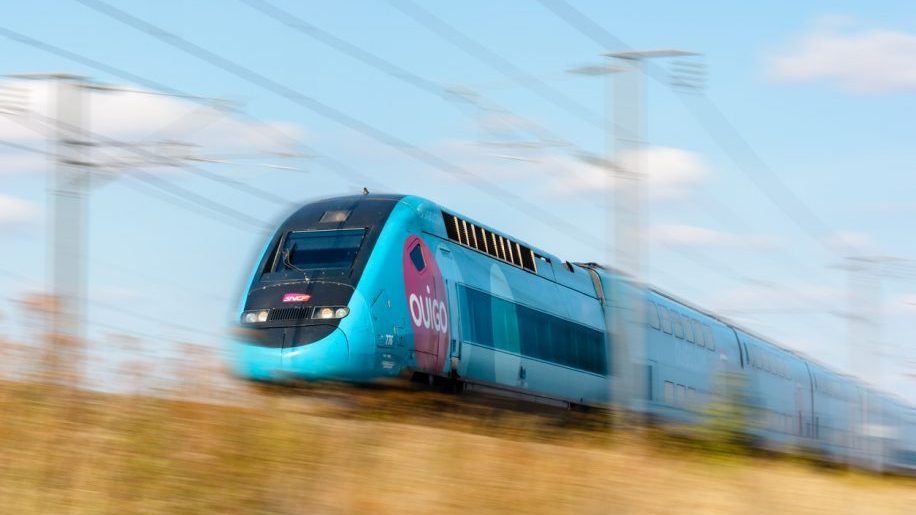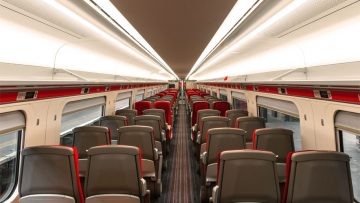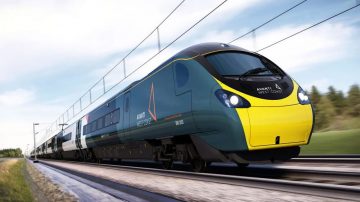
Continental rail services are expanding, with new competitors spurring existing rail operators to up their game, reports Alex McWhirter.
Rail services across mainland Europe are being invigorated. There are several reasons for this, most notably concern for the environment and the arrival of new operators. In the case of the former, the growing “flight shame” movement has contributed to an 11 per cent increase in rail traffic in Sweden and an expansion of services in Switzerland, with Swiss-Franco company TGV Lyria boosting capacity on its routes by 30 per cent. In Germany, a VAT cut on long-distance tickets (part of the government’s climate package) led to a record 12.2 million passengers travelling on Deutsche-Bahn in January.
Meanwhile, a number of newcomers have appeared on the scene as the European Union promotes competition for state-owned rail incumbents. This, in turn, is encouraging current rail operators to expand their existing services and introduce new ones. A more serious challenge is set to come from high-speed international competition. For example, while not included here because approval is still awaited from France’s rail regulator, Arafer, Italian state-owned operator Thello is planning to operate from Milan to Paris in June.
Here is a round-up of ten services on the Continent to have on your radar.
EUROSTAR AMSTERDAM-LONDON
The full potential of Eurostar’s London-Amsterdam route will be unleashed on April 30 when the operator launches direct twice-daily services from Amsterdam to London, to be followed on May 18 by Rotterdam-London (details correct as we went to press). Currently, passengers have to take a Thalys train from the Netherlands to Brussels, clear immigration and security checks, and then take the Eurostar to St Pancras International. The London-Amsterdam leg already runs direct up to three-times daily, and the operator plans to add more frequencies in both directions. eurostar.com
NIGHTJET VIENNA-BRUSSELS
In January, Austria’s Nightjet extended its Viennese network to include Brussels, with Amsterdam due to follow in 2021. Granted, Nightjet’s sleeper service plies Brussels Midi-Vienna only twice a week (with a third service planned for December), but it is a start and hopefully frequency will be increased in the future. Note that these overnight services mean en route possibilities, such as Liege in Belgium and Linz and Innsbruck in Austria. nightjet.com
MTRX STOCKHOLM-GOTHENBURG
MTRX, a subsidiary of Hong Kong-based MTR Group, operates regular services between Stockholm and Gothenburg, using Stadler Flirt trains (the same new trainsets operated by Greater Anglia – see “Track changes”, February 2020 issue). They cover the 457km route in three hours 15 minutes. mtrx.travel/en
DEUTSCHE-BAHN MUNICH-BERLIN
Many readers will know about Deutsche-Bahn’s ICE trains, which operate services to Cologne, Hamburg and Frankfurt. Lesser known is its new 623km route linking Munich with Berlin via Nuremburg and Leipzig. Schedules range between three hours 55 minutes and four hours 40 minutes, two hours faster than previous timings. bahn.co.uk
TGV LYRIA PARIS-SWITZERLAND
TGV Lyria is capitalising on flight shame and targeting the corporate market with a capacity boost of 30 per cent by using duplex trainsets. Regular three-class, high-speed trains link Paris Lyon to Geneva, Lausanne, Basel and Zurich in journey times of three to four hours. tgv-lyria.com
OEBB VIENNESE ROUTES
Austria lacks high-speed lines. In compensation, OEBB operates speedy three-class Railjets from Vienna to destinations in Austria, Switzerland, Germany, the Czech Republic, Hungary and Italy. oebb.at
OUIGO PARIS SERVICES
All credit to France’s SNCF for being the first train firm to emulate the low-cost airlines’ business model with its Ouigo subsidiary. These duplex TGV high-speed trains (which are branded separately from SNCF’s traditional TGVs) radiate from the Paris termini and suburbs to serve destinations throughout France. ouigo.com
AVLO MADRID-BARCELONA
This month, Spain’s Renfe was scheduled to launch its own version of Ouigo, which is branded Avlo, on the Madrid-Barcelona high-speed route, although this has now been postponed. Avlo uses Spain’s unique Talgo trainsets and its fares are priced below those that Renfe charges for its regular high-speed AVE services. Renfe has been forced to act to compete with the entry of Ouigo into the Spanish domestic market later this year. renfe.com
IZY PARIS-BRUSSELS
IZY (pronounced “easy”) is yet another innovative train, this time from SNCF and Belgium’s SNCB and Thalys. It operates up to four times daily between Paris Nord and Brussels Midi, with low fares in all classes. The journey time is two and a half hours – roughly one hour longer than Thalys – and IZY charges less because it operates over classic lines, thus avoiding high-speed access fees. Since last year it has used one of the original Eurostar trainsets. izy.com
FLIXTRAIN GERMAN SERVICES
Rather than operate high-speed trains over high-speed lines, Germany’s Flixtrain deploys conventional rolling stock running over classic track, meaning fares remain low. Its current routes are Aachen-Leipzig, Stuttgart-Berlin and Cologne-Hamburg. Flixtrain wants to expand in France to compete with IZY and is awaiting approval from France’s rail regulator Arafer. flixtrain.com












